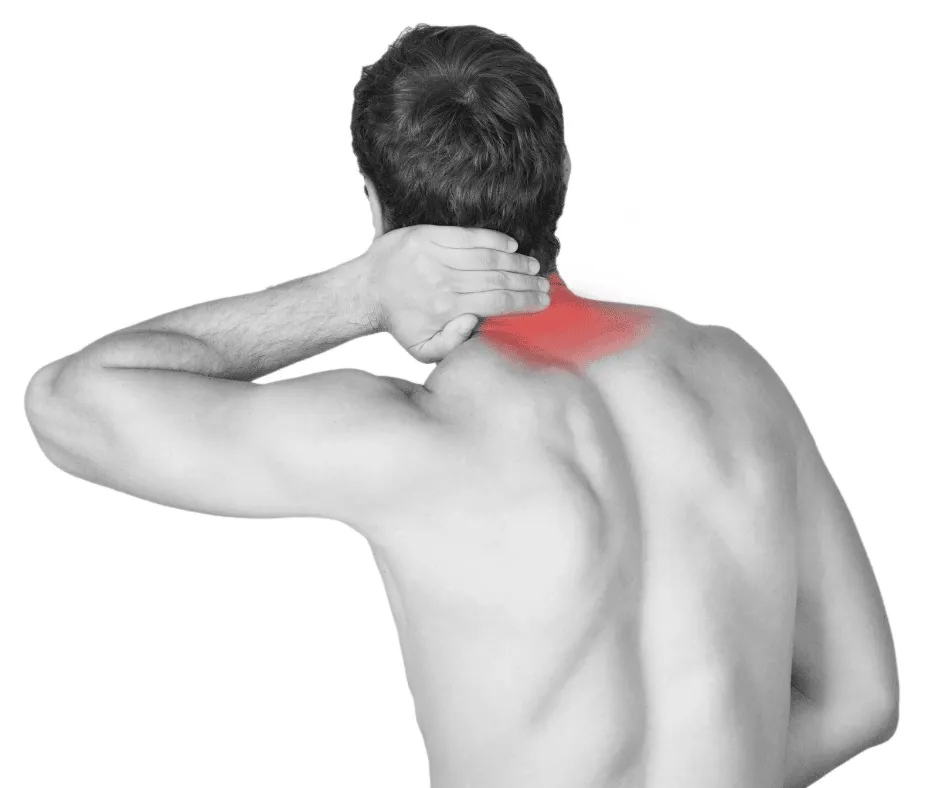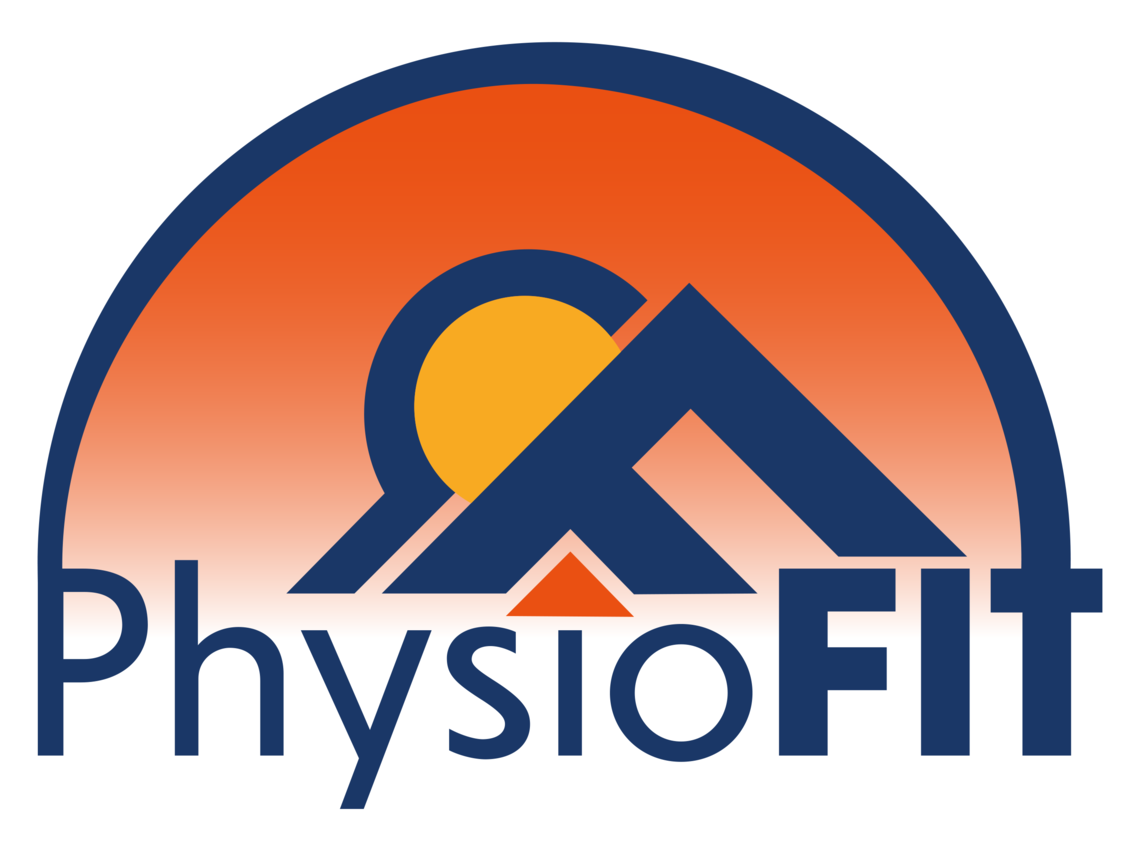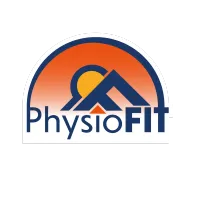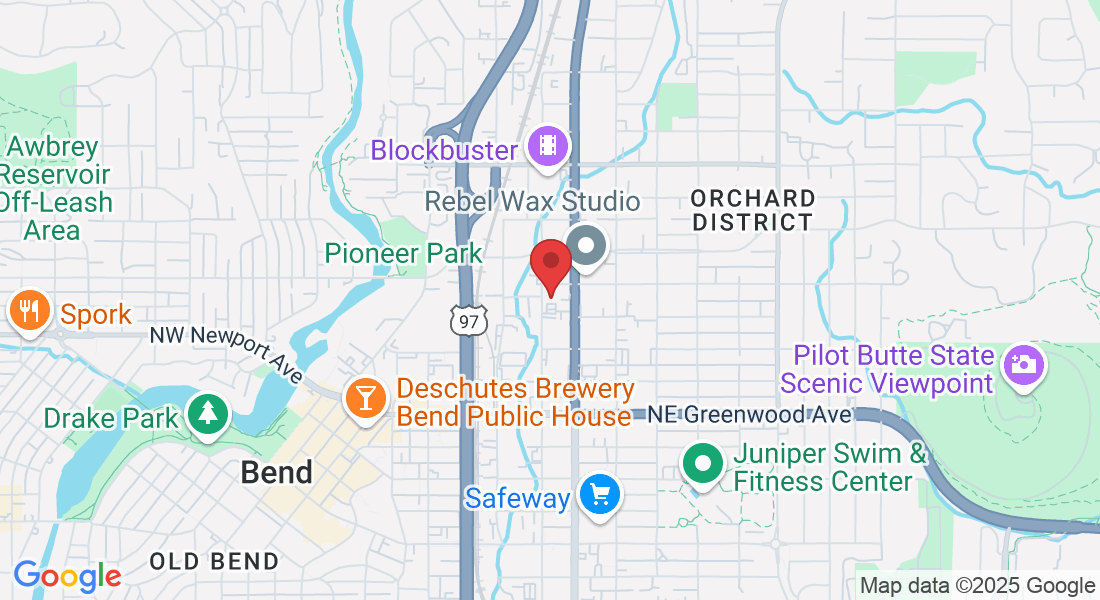Neck Pain Relief
Living Life Shouldn't Be Such a Pain in the Neck
Are you one among the millions experiencing "neck pain" and seeking relief? Neck pain is an everyday battle for roughly 10-20% of U.S. adults, leading to work absences, diminished life quality, and restricted physical activities. Consider us your guide, providing essential knowledge about neck pain and illustrating how we can assist you in restoring your well-being.
At PhysioFit, we are committed to delivering well-rounded neck pain treatments, expertly designed to align with every patient's specific condition and requirements. Our practice is rooted in a science-based, exercise-centric methodology of physical therapy, centered around individualized care plans for pain relief. Our vision transcends the mere alleviation of your neck discomfort; we strive to enhance your holistic health, diminish the chance of chronic or recurrent pain, and expedite your return to your routine activities.
What You Should Know
The most frequent injury resulting from car accidents is neck pain, accounting for nearly half, or 49%, of all vehicular injury cases.
Persistent neck pain may cause an array of complications, including depression, tension in relationships, anxiety, issues at work, hindrance in day-to-day tasks, and excessive tiredness.
Neck discomfort ranks third as a source of chronic pain.
A proper diagnosis of a neck problem involves a thorough evaluation from a professional.

The Most Common Causes of Neck Pain
Neck pain, a common complaint that can arise from various sources, often disturbs the delicate balance of daily life. Whether it's the natural aging process, physical strain, mental stress, traumatic injury, abnormal growths, or an underlying health condition, the origin of neck pain can be multifaceted. Understanding these potential causes is a crucial step towards effective treatment and relief.
Neck discomfort can be attributed to several factors:
Age-related Deterioration: Aging can lead to natural wear and tear of the cervical spine, leading to degenerative conditions like osteoarthritis or spinal stenosis, which can provoke neck pain. Persistent stress and repeated movements can weaken spinal disks, potentially causing a herniated disk or a pinched nerve.
Physical Exertion: Repetitive or strenuous activities can overstrain neck muscles, resulting in stiffness and pain. Factors like poor posture, weak abdominal muscles, and excess body weight can misalign the spine, contributing to neck discomfort. Long hours spent in front of a computer, straining the neck, is a common contributor to neck pain.
Psychological Stress: Stress-induced muscle tightening can lead to neck stiffness and pain. Many individuals may unconsciously tense their neck muscles during periods of stress or agitation, only realizing it when the neck begins to hurt.
Injury: Trauma can damage muscles, ligaments, disks, vertebral joints, and nerve roots in the spinal cord, causing neck pain. Whiplash, a common neck injury resulting from car accidents, often leads to neck discomfort.
Abnormal Growths: Tumors, cysts, and bone spurs can exert pressure on neck nerves, inducing pain.
Underlying Health Conditions: Certain health conditions, including meningitis, rheumatoid arthritis, and cancer, may present neck pain as a symptom.
If any of this information resonates with your current situation, we urge you to schedule an appointment with us immediately. Don't let hip pain diminish your life quality - allow us to help you embark on the path to relief today.
Strategies for Negating Neck Pain
Strategies can be implemented to mitigate neck discomfort related to muscle strain or tension. They are as follows:
Adopt Healthy Posture Habits: Arrange your devices such as computers and phones to prevent neck strain or slouching while using them. Ensure your shoulders are aligned, your back is straight while seated, and your neck isn't strained. Fine-tune your car seats for proper posture during transit.
Optimize Your Sleeping Position: Retain good posture even during sleep. Use a pillow for head support to align your head and neck with your body if you sleep on your side or back. For back sleepers, consider placing a pillow under your knees to lessen lower back pressure. Avoid stomach sleeping with a turned head.
Stay Mobile: Utilize exercises meant for neck pain relief to also prevent it. If your job requires prolonged sitting, incorporate occasional breaks for stretching and mobilizing, including neck muscles.
Avoid Shoulder-Borne Heavy Loads: Refrain from carrying substantial weights like book bags or suitcases on your shoulder. Opt for wheeled luggage or bags instead.
Strengthen Your Upper Back Extensor Muscles: Age-related weakening of the upper back is normal, causing the shoulders to stoop and the head to tilt forward. This posture puts extra strain on your neck and upper back.

Common Symptoms of Neck Pain
Experiencing headaches
Sensation of numbness or a tingling feeling, akin to 'pins and needles', in your shoulders or arms.
Inability to rotate the neck or incline the head
Rigidity in the neck, shoulder, and upper back regions
A radiating pain extending from the neck down to the shoulders or arms
An intense sensation of stabbing or burning
A continuous, nagging discomfort
Remember, if you resonate with any of the symptoms or conditions mentioned, we highly recommend making an appointment with us for a thorough evaluation and personalized treatment plan.
Please Note: The information provided on our website is intended for general education and is not a substitute for professional medical advice. Each individual's situation and body is different. Therefore, what may work for one person may not work for another. We care about your well-being and advise you to reach out to us to discuss your specific needs before implementing any advice from our website.
Your Source for All Things Physical Therapy in Bend Oregon
The PhysioBlog

The Top 5 Reasons Why CrossFitters Need Physical Therapy: Insights From PhysioFIT
PhysioFIT's Perspective: The Essential Role of Physiotherapy for CrossFitters
Please Note: The information provided on our website is intended for general education and is not a substitute for professional medical advice. Each individual's situation and body are different. Therefore, what may work for one person may not work for another. We care about your well-being and advise you to reach out to us to discuss your specific needs before implementing any advice from our website.
Introduction
CrossFit is a high-intensity fitness regimen that has gained popularity worldwide. It incorporates elements from various disciplines, including weightlifting, gymnastics, strongman, and the list goes on. While it's an excellent way to build strength, endurance, and agility, the physical demands of CrossFit , like with any physical activity, can also lead to injuries if not properly managed. This is where physical therapy comes into play. At PhysioFIT, we believe in the importance of physical therapy care in maintaining fitness and preventing injuries, especially for CrossFitters.
The Physical Demands of CrossFit
CrossFit workouts, known as WODs (Workouts of the Day), often involve complex movements that require strength, flexibility, and coordination. These can include everything from Olympic lifts to high skill gymnastic movements. These workouts are intense and often time dosed inappropriately at your local box. According to a study published in the Orthopaedic Journal of Sports Medicine, nearly 20% of CrossFit participants reported experiencing an injury over a 12-month period. While this is often lower than many popular sports in the U.S it remains something we should be paying attention to.
The Role of Physical Therapy in CrossFit
Physical therapy can play a crucial role in helping CrossFitters optimize their performance and prevent any type of fitness or sports-related injuries. AtPhysioFIT, we take a proactive approach to physical therapy. Instead of waiting for an injury to occur, we work with athletes to strengthen their bodies, improve their mobility, and correct any imbalances or poor movement patterns that could lead to injury. This approach, often referred to as preventive physical therapy, can help CrossFitters stay healthy and perform at their best. We believe we are best positioned to help you because we are one of you! We intimately understand not just the intensity of the program but the culture, methodology, and movements involved.

Why CrossFitters Shouldn’t Wait Until They Can’t Workout to See a Physical Therapist
Many athletes, including CrossFitters in Central Oregon, make the mistake of waiting until they're in pain or can't workout before seeking help. However, by the time pain sets in, an injury has often already occurred. Early intervention with physical therapy can help identify potential issues before they become serious problems. Remember, no movement done properly should induce joint pain regularly. If the front of your shoulder hurts every time you do toes to bar or the base of your neck is sore after handstand push ups this is your body telling you something is not moving the way it should. Just because it happens frequently doesn't mean it’s normal.
At PhysioFIT, we believe in catching and addressing these issues early. Our team of physical therapy specialists can assess your movement patterns, identify any areas of weakness or imbalance, and provide you with a personalized treatment plan to address these issues. This proactive approach can help you maintain your fitness, prevent injuries, and keep doing the workouts you love.
The Top 5 Reasons Why CrossFitters Need Physical Therapy in Bend Oregon
Reason 1: Injury Prevention
CrossFit is a high-intensity workout regimen that pushes your body to its limits. While this can lead to impressive fitness results, it can also increase the risk of injuries.
This is where physical therapy comes in. At PhysioFIT, our physical therapists can help CrossFitters understand their bodies better and prevent injuries. We do this by teaching proper form, identifying and addressing movement imbalances, and creating personalized training programs that consider each individual's unique physical capabilities and limitations.
Reason 2: Performance Optimization
Physical therapy isn't just about injury prevention and recovery. It's also about optimizing performance. At PhysioFIT, we understand that every CrossFitter has performance goals, whether it's lifting heavier weights, completing workouts faster, or simply being able to train consistently without pain.
Our physical therapists can help you reach these goals. We do this by enhancing movement efficiency, reducing energy waste, and improving strength and flexibility. With our help, you can push your limits in a safe and effective manner.
Reason 3: Mobility Improvement
Mobility, or the ability to move and control your joints through their full range of motion, is crucial in CrossFit. It allows you to perform exercises correctly, reduces the risk of injuries, and contributes to overall performance.
At PhysioFIT, we offer mobility training as part of our physical therapy services. We teach exercises that improve flexibility, balance, and body control, and we provide hands-on treatment to address any mobility issues you may have.
Reason 4: Recovery Acceleration
CrossFit workouts can be tough on your body. That's why recovery is an essential part of every CrossFitter's routine. Proper recovery reduces muscle soreness, prevents overuse injuries, and ensures that you're ready for your next workout. Remember, recovery is more than a cold plunge.
Physical therapy can speed up recovery. At PhysioFIT, we use techniques like massage, stretching, and targeted exercises to help your body recover from intense workouts. We can also provide limited advice on nutrition, sleep, and other lifestyle factors that affect recovery. In Crossfit, we find training load (often in the form of volume) is the biggest culprit for adverse events that keep you out of the gym. We are always happy to talk with you and help you nail down what training load is appropriate for you and help you increase that capacity (should that be your goal).
Reason 5: Technique Refinement
Proper technique is crucial in CrossFit. It ensures that you're getting the most out of each exercise and reduces the risk of injuries. However, with the wide variety of exercises in CrossFit, it can be challenging to master the technique for each one.
This is another area where our physical therapists can help. At PhysioFIT, our physical therapists are experts in movement analysis. We can observe how you perform different exercises, identify any issues with your technique, and provide feedback and instruction to help you improve. Again, we didn't just learn about these movements in books. We’ve spent years refining our own technique not only because we love it but because we believe to help you we need to truly understand the demands your body is under first hand.

FAQs
What is CrossFit?
By definition CrossFit is high-intensity functional movements executed at high intensity. It mixes almost every training modality to help build the most resilient you possible. It aims to build a body that is prepared for anything life will throw at it.
What CrossFit isn't?
Crossfit is not inherently more risky than other forms of exercise or sport.
Crossfit is constantly varied… not random.
Why might CrossFitters need physical therapy?
CrossFitters may need physical therapy due to the high-intensity and often high volume training seen in many Crossfit boxes, which when not managed appropriately, can lead to injuries. Physical therapy can help in injury prevention, recovery, and improving performance.
What are some common injuries in CrossFit?
Injuries we tend to see in crossfitters are shoulder, knee, and lower back injuries.
What is PhysioFIT?
PhysioFIT is a physical therapy clinic that offers a range of services, including manual therapy, injury prevention, rehabilitation, and performance enhancement, tailored to the needs of each individual. Call and schedule an appointment with us today!
Conclusion
Physical therapy should play a crucial role in the world of CrossFit. It not only aids in the recovery from injuries but also helps in preventing them. By improving mobility, strength, and overall fitness, physical therapy can significantly enhance a CrossFitter's performance.
Moreover, with the high-intensity and high-volume nature of CrossFit, the risk of injury is always present. Therefore, incorporating physical therapy into a CrossFitter's routine is not just a smart choice, but should be a necessary one.
At PhysioFIT, we understand the unique needs and challenges of CrossFitters. Our team of experienced physical therapists is dedicated to helping you stay fit, healthy, and injury-free. So why wait? Make physical therapy a part of your fitness regimen today. Your body will thank you.
Please Note: It's important to note that any exercises that are shared should be performed under the guidance of a qualified physical therapist in bend to ensure correct technique and to prevent injuries. A physical therapist can provide a customized exercise program based on the individual's fitness level, goals, and any existing injuries or conditions. If you’d like to explore this more or would like to schedule a time with a physical therapist, contact us atPhysioFITBend.com
Copyright PhysioFIT 2025 . All rights reserved


